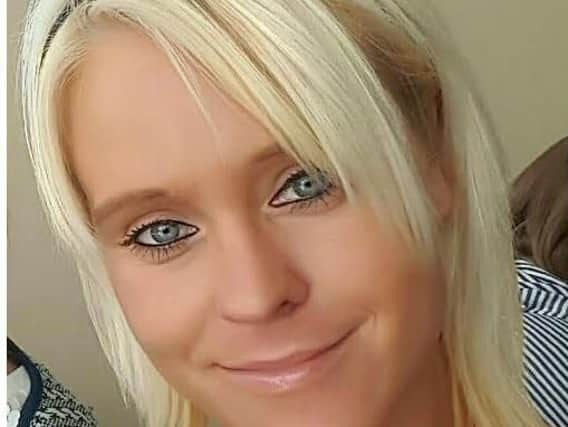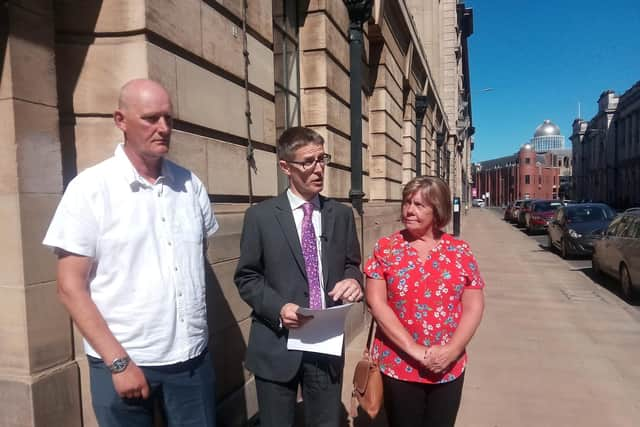Verdict of "natural causes" after woman, 33, collapsed at court


It came as Prof Paul Marks ruled that 33-year-old Hayley Gascoigne who collapsed and died at Hull Combined Court last January died from natural causes.
The inquest heard that the first paramedic to arrive in the concourse, Gary Long, 60, made serious errors, including failing to recognise the mother-of-four had a shockable heart rhythm.
Advertisement
Hide AdAdvertisement
Hide AdA serious incident report by Yorkshire Ambulance Service said his actions, including failing to put defibrillation pads on her and leaving cardiac drugs in his car, fell far short of the expected standard.


After the incident Mr Long never returned to frontline duties and he retired last November.
However Prof Marks agreed with independent expert Dr Francis Morris who told the hearing that if a shock was delayed any more than four minutes, the chances of someone surviving were “diminished significantly.”
Mr Long took five minutes to arrive at Ms Gascoigne’s side following the 999 call and would have needed 90 seconds to make a correct assessment, remove her clothes and attach the defribillation pads.
Advertisement
Hide AdAdvertisement
Hide AdProf Marks said: “Having accepted Mr Morris’s evidence and the incontrovertible evidence of admitted failing, the timing does not show there was a missed opportunity, that had it been taken would have avoided Hayley’s death.”
Ms Gascoigne, who worked as a carer at a home for people with cerebral palsy, had been “visibly upset” following the conclusion of family court proceedings .
Mr Morris said acute emotional distress could provoke an arrythmia, or irregular heart-beat.
“We are increasingly recognising broken heart syndrome,” he said.
Advertisement
Hide AdAdvertisement
Hide AdSpeaking afterwards her parents Terry and Kate Gascoigne said they felt Hayley, of Baildon Road, Scunthorpe, would have had a better chance of living if those involved had acted with greater urgency, adding: “We sincerely hope lessons will be learned.”
They said: "Hayley's collapse in court was horrific and it gets no easier to bear when you consider that so much more could have been done to try and save her.
"She could still be with us today - a mother to her four children, our beautiful girl."
Their lawyer Nick Gray, of Williamsons Solicitors, said an “unacceptable amount of time” passed before serious attempts were made to revive her.
Advertisement
Hide AdAdvertisement
Hide AdHe said they found the lack of a public access defibrillator at Hull Combined Court "extraordinary", adding: “These are a proven lifesaver and you would have thought a court, of all places, would have one.”